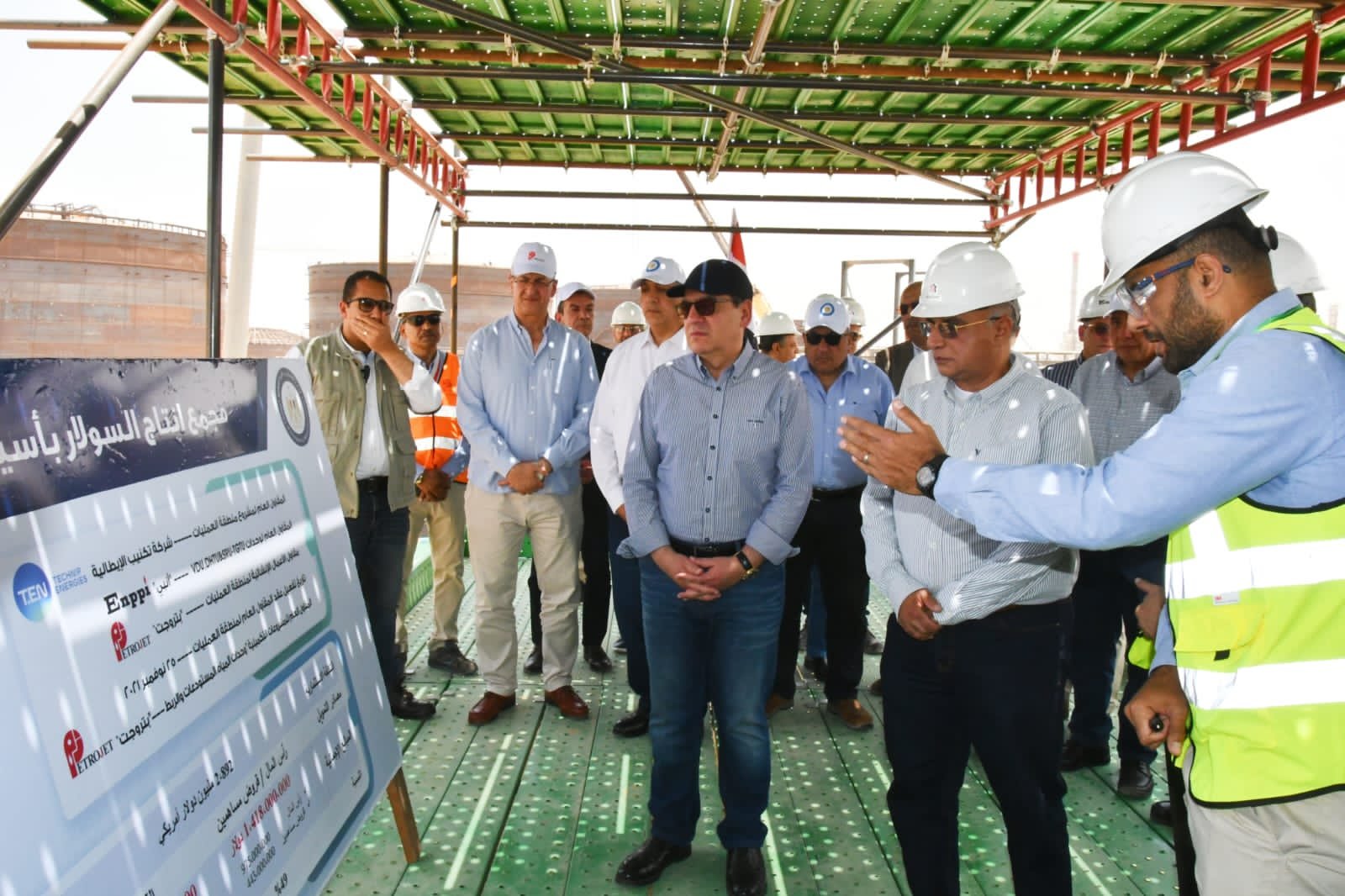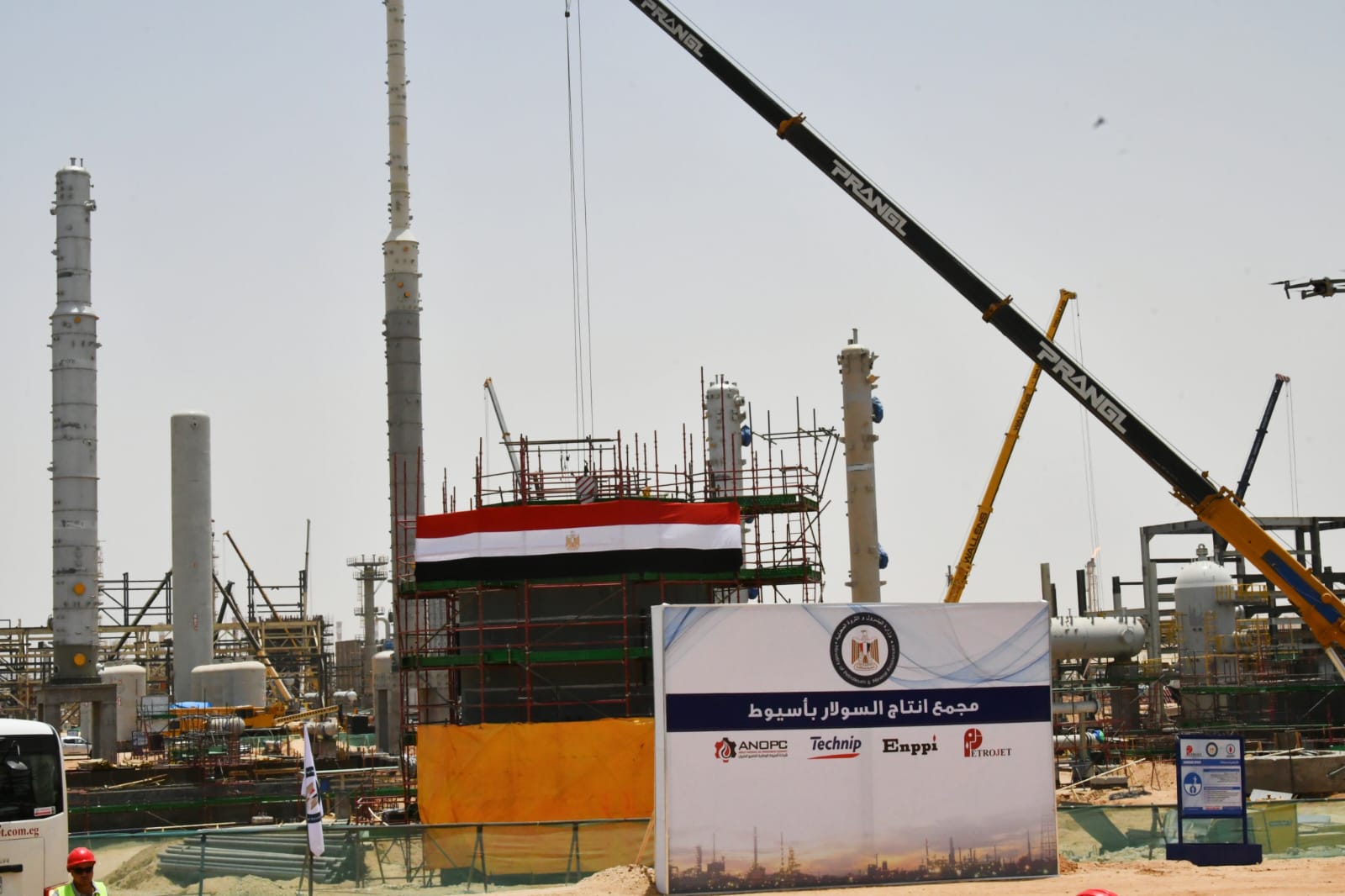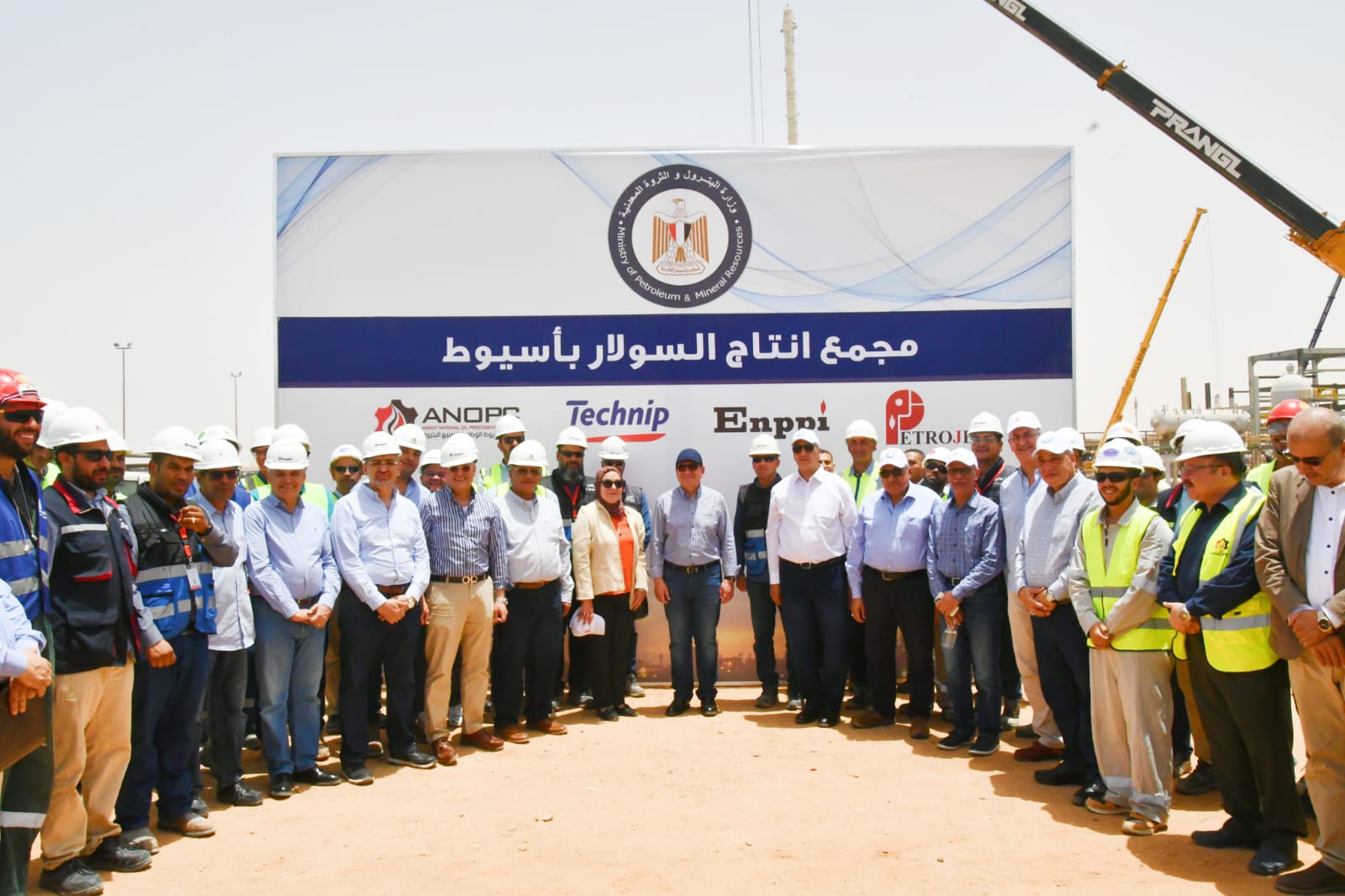Egyptian Minister of Petroleum Tarek El-Molla revealed that his country has implemented an integrated plan to stop importing diesel fuel and gasoline, and to achieve self-sufficiency.
He pointed out, during his inspection of projects to increase the production capacity of diesel and local manufacturing capabilities in Assiut Governorate, that the Egyptian oil sector is implementing an integrated plan to increase the capabilities of refineries in order to meet local needs.
During his visit to Assiut Governorate, the Egyptian Minister of Petroleum inspected the ongoing works and the implementation stages of the project for the production of diesel and oil products of the Assiut National Petroleum Processing Company (ANOPEC), which is the largest project being implemented in Upper Egypt.
Egypt’s production of diesel had increased by 12.4% in 2022, recording 10.9 million tons, compared to 9.7 million tons in 2021.
The value of Egypt’s imports of diesel last year amounted to about $3.5 billion, compared to $2.2 billion during (2021), recording an increase of $1.3 billion, or 58.8%, according to the data seen by the specialized energy platform.
Saudi Arabia tops the list of countries that export the most diesel to Egypt during 2022, with a value of about $1.5 billion, followed by Kuwait with a value of $931.9 million, the UAE with a value of $530.2 million, India with a value of $420.9 million, then Greece with a value of $111.5 million.
import limitation
The Egyptian Minister of Petroleum confirmed that the project is of great importance and a distinct economic return within the ministry’s plan to develop, expand and raise the efficiency of Egyptian oil refineries to increase production capacities of diesel and gasoline and support their ability to reduce imports.
The Egyptian Ministry of Petroleum sought during 2022 to achieve stability in the fuel market locally, by meeting internal needs, as the total consumption amounted to about 81 million tons, an increase of 6.2% over the previous year 2021, with 35.5 million tons of petroleum products, and 45.6 million tons of oil. Natural gas.
The new complex aims to produce about 2.5 million tons annually of oil derivatives, foremost of which is diesel according to European specifications, at 1.6 million tons, to reduce imports of this vital product and secure the consumption of the governorates of Upper Egypt through this project as an alternative to transporting diesel there from northern Egypt.
The project also provides the needs of the governorates of Upper Egypt for domestic gas – liquefied oil gas – and naphtha for the production of gasoline as the main products of the complex, according to the data seen by the specialized energy platform.
The Egyptian Minister of Petroleum listened to a presentation on the status of the progress of the work in completing the 4 main units of the complex, in addition to the complementary units in the form of industrial wastewater treatment units and others that serve the project, whose work is being carried out by Enppi and Petrojet companies, in cooperation with the Italian company Technip, at an investment cost of $2.9 billion.

Components manufactured locally
The Egyptian Minister of Petroleum pointed out that the manufacture of components for the project in local manufacturing workshops constantly contributes to raising the percentage of the local component in the project, to reach more than 50%, after it rose during the current period to between 40 and 45%.
Al-Mulla directed the continuation of full coordination between the companies executing the project and work to provide the necessary requirements for the completion of the targeted works in accordance with the planned time programmes, with full commitment and taking into account the implementation of occupational safety and health procedures and the preservation of the environment.
Al-Mulla inaugurated and inspected the new central manufacturing workshops of Petrojet, which was established on an area of 20,000 square meters, explaining that the establishment of the project aims to increase manufacturing capabilities and raise the proportions of the local component in the new projects of the oil sector in the Assiut Petroleum Region.
The project is characterized by specialized manufacturing capabilities for vessels, tanks and towers, as they are major components in the new complex being established for the production of diesel and gasoline in Assiut, which raises the percentage of the local component, as well as projects to raise the efficiency of the oil refinery in Assiut.
The Egyptian Minister of Petroleum stressed that the project has a positive impact on reducing the import of components in hard currency, speeding up the completion of projects, and settling the strategic industry in Egypt with Egyptian hands and minds from the cadres of the Egyptian oil sector.
Al-Mulla also inspected the new manufacturing workshops, and was briefed on what has been accomplished in the field of manufacturing for the projects being established within the Ministry’s plan. The head of Petrojet, Eng. Walid Lotfi, reviewed the most important features of the project, which is the latest project completed by the company to increase local manufacturing capabilities.
The project includes 3 specialized production and manufacturing workshops with a capacity of 1800 tons per year, equipped with the latest capabilities of machinery and equipment. 9 thousand tons in a water treatment unit for the ANOPC complex for diesel and high-value petroleum products that is being established.

related topics..
Also read..

Leave a Reply